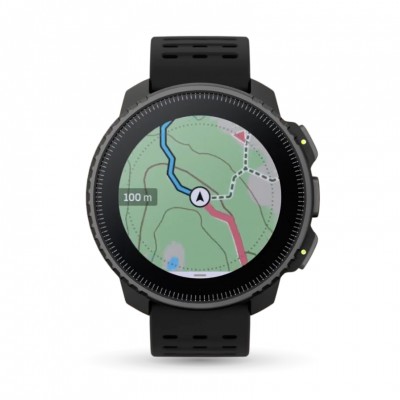I'm sure you've heard many times that willpower can make us go much further than our physical condition allows us to go. Yes; that is true and as a coach, I see it very often.
But what happens when it is just the opposite, when our mind is the one that plays tricks on us and prevents us from giving everything we have inside. Physically we are in conditions to achieve our goal, but our head thinks we are not and prevents us from achieving it. Always? No, as you will see below.
Under 4 minutes a mile
So, I want to tell you the story of Roger Gilbert Bannister, specifically the time when he era a great athlete and medical student at Oxford, before becoming a prestigious neurologist. In 1954 Bannister was a member of the University track and field team. At this time there was a track and field event that had a mythical and insurmountable world record; it era the mile event and the impossibility of going under four minutes. The world record had stood at 4.02 minutes since 1945. Era so insurmountable that even the doctors assured that it would never go under four minutes because the human body was physiologically not made to go that fast.
Bannister set out to beat the record and, above all, to go under four minutes. What happened that day was an event of its time.
The race was broadcasted live by the BBC and with a luxury commentator, Harold Abrahams (sure you know him; he is the one who runs and wins the 100-meter race in the movie Chariots of Fire). And yes, Bannister did it. He broke the world record and most importantly, he broke the four-minute barrier, exactly 3.59.4''.
We could talk a lot about what Bannister did, his willpower, determination, ignoring the establishment and going further than anyone else.
But I would like to draw your attention to another subject, which surge as a consequence of Bannister's breaking the barrier, the four-minute wall. As I told you, in spite of all the attempts, no one had ever managed to go under 4.02'', let alone four minutes. Well, Bannister broke the record on May 6, 1954. From that date until the end of the year, do you know how many athletes were able to go under four minutes? More than thirty athletes...
That is to say; after years and years of trying, Olympic Games, different coaches and training systems, no athlete had been able not only to go under four minutes, but even to go under 4.02''. Suddenly, Bannister does it and in a very short period of time, the remainder of the year, others do it.
As of May 6, these thirty plus runners were running times above 4.02', in a few months will they be able to improve their fitness enough to drop more than two seconds in four minutes of running? In a few runners still, but in more than thirty it is hard to believe.
What was going on?
These athletes potentially had the physical capacity to go under four minutes. But mentally they did not. It had become an absolute truth that it was impossible to go under that time, even medicine confirmed it. And mentally, an invisible barrier was erected that was so internalized that they did not even realize it existed. This barrier tells us that it is not possible to go under four minutes. And neither we nor anyone else can go below that time.
But one day someone manages to do it, someone breaks that limit and then our mental barrier disappears. Yes, it is possible; it is humanly possible. And we say to ourselves that if that person has been able to do it, why not me too?
What if it is possible?
Something very similar can happen to us in our daily lives. As athletes, at work or in our personal relationships. If we think something is impossible, we don't even try. But suddenly someone around us, with abilities similar to ours, achieves it. And then we say to ourselves: - if that person has been able to do it, then so can I. Our physical form has not changed, has not improved, but our mental disposition has. We dare to do something that a few moments before, we were convinced that we would not be able to do.
When you face a challenge where you think you can't do it, ask yourself: can't you really do it, or do you really think you can't and so you don't try? Break your barriers; dare.
Aitor Loizaga
www.coachingsinlimites.es
Read more news about: Running Training





















